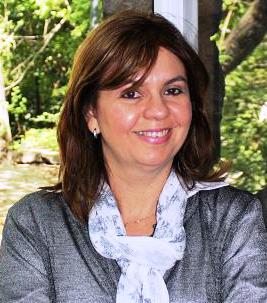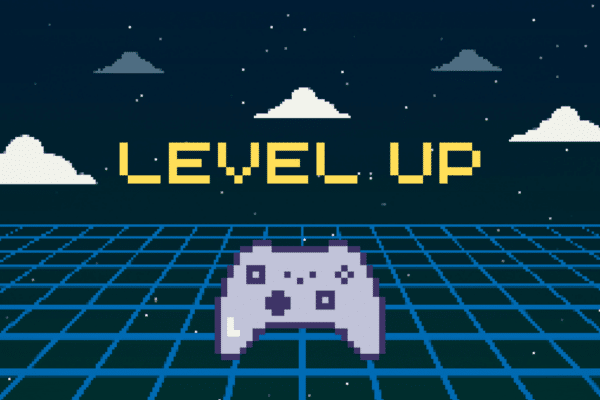A (Brazilian) Portrait of PD for Teachers: From Dilemma Managers to Subjects of Practice and Knowledge
It’s been quite a long period of silence. In my last post I wrote about changes. One of those changes has to do with the fact that in my current job I have visited schools all over Brazil. I have been to rich and poor schools and I have met wonderful teachers with similar dreams and needs everywhere.
Most of these professionals show hunger for change, but they seem to be unaware of alternative proposals regarding their work. It is clear that, in many instances, the teacher can be appointed as the great villain of the wicked school project (as it centralizes passing or failing the student) usually based on scholastic (book centered) or poor vision.
This post aims to reflect upon the situation of teachers in Brazil, reflective practice and continuing education as part of professional development.
Teacher development has moved beyond simple in-service workshops and has expanded into a more robust system of continuing education. In order to advance in their careers, teachers should seek out professional development opportunities, which are ongoing and aligned with standards and assessments.
The criticism to the model of technical rationality and the emergence of the reflective critical approach enable the recognition of the importance of the teacher and his professional development as a decisive variant to the comprehension of the educative phenomenon. However, in Brazil we witness some different realities which portrait teachers as eternal “scapegoats”, instead of understanding a “teaching culture in action” and its role to the school transformation.
We know that teaching is a very hard job, but for those who really want to make the difference they will certainly seek out new possibilities to include in their practice and new methodologies that will contribute to their work and the quality of teaching. In this sense there is a need to reflect on the teaching practice and relate it to a training process. Theoretical training and practice can contribute to the improvement of education quality and reflect on social changes that may generate changes in relation to the learning result from a quality education, where a professional and personal qualification are required. Consequently educators can reflect on their practice and from there look for improvements that may be undergraduate, graduate, master’s, doctoral or even lectures, seminars, reading books among them the great theorists of education. Therefore, there is a need for the educator to relate theory and practice, since one depends upon the other. Professional development as an ongoing process is an important issue since teachers need to be aware that their training should be continuous and related to their day-to-day. Romanowski (2009,p.138) states that “Continuing education is a requirement for the current times. So teachers cannot stop studying. Lots are the challenges that professionals face, so keeping up to date and develop pedagogical practice is essential for greater mobilization in teacher education, not to mention that it is necessary to create favorable conditions both in continuing education and in appreciation of it.
Unfortunately the neglect or indifference to the magisterial, the disinterest in-depth study of (new) knowledge to the aggressiveness of students or parents, work overload the weakening of the teaching power or even the low expectations with respect to school seem to features of this “craft” end of this century and not simple “defects” of the “torturers and incompetent” teachers .
It is no surprise that teachers ‘ burnout became a phenomenon throughout the western world and not only between teachers ‘underdeveloped and poorly trained.
As Fullan and Hargreaves (1992) claim: The development of the teacher should listen and support the teachers’ voice; establish opportunities for teachers to confront the assumptions and beliefs that underlie their practices; avoid fads and blind implementation of new teaching strategies and create a community of teachers who discuss and develop their purpose together over time. (P. 5) In this sense, the recognition of this “voice” also implies reflecting on it. Rethink (you and your work), rethink the process and rethink the context. And we must recognize that the “context” only reinforces current marginality in which most of our teachers were placed. The importance of change in teaching practice involves rereading the teacher’s role as reflective practitioner and the school as organization promoting the development of the educational process. The appreciation and better remuneration than teaching professional aims in much of his training and initial performance but also their continuing education as well as good working conditions, salary and career. Armed with these elements the environment inside and outside the classroom will lead to success. This walks in search of renewal of the knowledge involved and worked throughout his professional life. Armed with this basic knowledge, the fruits will be harvested either by the teacher who will be reaching your goals as the student.
Finally, Teacher Development is not (only) built by accumulation ( courses , knowledge or techniques) , but also through a work of critical reflexivity on the practices and (re) construction of a permanent personal identity:
- The training process is dependent on educational paths.
- The training process feeds on educational models, but choking when it becomes too “educator “.
- The training comes and goes, ebbs and flows , building on a process of relation to knowledge and knowledge ( Nóvoa 1994, p. 3 )
It is necessary for the teacher himself to be able to build himself his knowledge of his own work. (Dias da-Silva 1994, p. 46 ). The construction of critical and reflective teachers of engaged intellectuals and qualified for the construction of citizenship in the classroom is emerging and is an essential challenge in any subsequent attempt to school transformation. Promote, encourage, study and / or cause the conditions for this development to occur, will enable teachers to meet these challenges.
Last but not least, instead of conceiving the teachers as “dilemma managers” teachers should be be considered as subjects of practice and knowledge who need to be analysed according to their professional development, which are interposed by their work conditions, values and social context. This conception is decisive to any consequent attempt of transforming the school.
REFERENCE:
DIAS-DA-SILVA, M.H.G.F. O professor como sujeito do fazer docente: A prática pedagógica nas 5ªs séries. São Paulo, Faculdade de Educação/USP, 1992, tese de doutorado
FULLAN, M. e HARGREAVES, A. (org.). Teacher development and educational change. London, Falmer Press, 1992.
NÓVOA, Antônio. Escola nova. A revista do Professor. Ed. Abril. Ano. 2002, p,23.
NÓVOA, Antônio (Cood.) professores e sua formação Lisboa-Portugal, D, Quixote. 1995.
ROMANOWSKI, Joana Paulin. Formação e Profissionalização docente. Curitiba: Ibpex, 2007. LOIOLA, Rita. Formação continuada. Revista nova escola. São Paulo: Editora Abril. nº: 222.p.89, maio 2009.
PERRENOUD, P. Práticas pedagógicas, profissão docente e formação. Lisboa, Dom Quixote, 1993.








